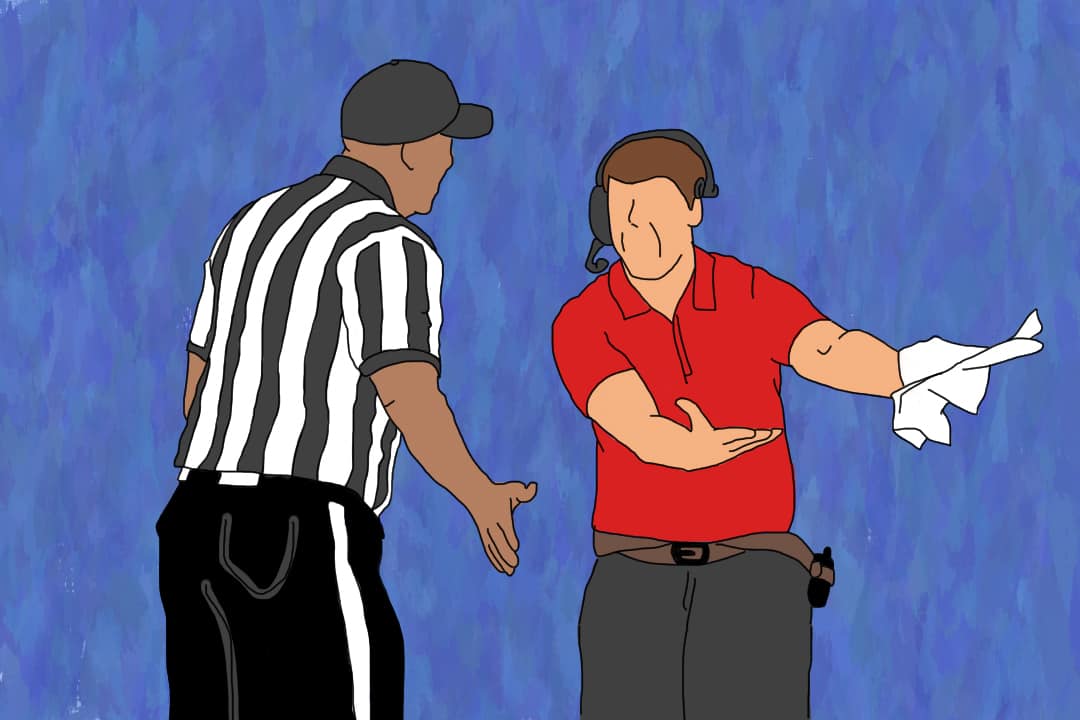Flag! “Prior to the pass, Holding, Number 24, Defence. Five yard penalty, automatic first down.”
The penalty was called on Philadelphia Eagles cornerback James Bradberry for holding Kansas City Chiefs wide receiver Juju-Smith Schuster. In the final two minutes of a tie game, the Chiefs were awarded a first down, allowing them to run the clock, score a field goal, and win the game.
Immediately after the game ended, the outrage started. Philadelphia Eagles fans claimed that they were robbed and that the referee changed the outcome of the game. Chiefs fans celebrated and said that a call is a call.
After the game ended, Bradberry himself said to CBS Sports, “I pulled on his jersey. They called it. I was hoping they would let it slide.” This is not so much a question about the validity of the call, but rather the consistency of the penalties NFL referees give.
"I pulled on his jersey. They called it. I was hoping they would let it ride."
James Bradberry on the pivotal holding call pic.twitter.com/5P8zvFqswd
— Bleacher Report (@BleacherReport) February 13, 2023
It is argued that calls in the NFL often have to do with seniority in the league. Players like Joe Burrow have explained that there are defensive players that, in their first season, “will hit you a little bit after the whistle” because they are aware as a rookie, a referee may let the call go.
This is also apparent when veteran players can get a “roughing the passer” call on a normal sack, similar to the one the seven-time Super Bowl champion Tom Brady got on October 9 this season against the Atlanta Falcons.
This may be the WORST roughing the passer penalty I’ve ever seen. Embarrassingly bad call. The Falcons got screwed.
(🎥: @TrainIsland)pic.twitter.com/KdvC0mi2KJ
— Field Yates (@FieldYates) October 9, 2022
So, where does the problem lie? On one hand, there is the argument that football is no longer a full contact sport and that referees are too involved in the game. On the other hand, if a call is missed or granted in favour of the opposing team, players state that it is no longer fair.
Despite these concerns, it’s important to recognize the significance of an officiating crew on the field. If flags aren’t thrown correctly, millions of dollars could be lost, titles can be forsaken, and players’ safety on the field may be at risk.
It’s also important to remember that referees are rigorously trained for these roles. In order to become an NFL referee, a Bachelors degree is generally expected, along with 10 or more years of football officiating — five of which include major college games — and NFL training.
However, no amount of training will rid a referee of the propensity for human error. This has led some people to suggest that technology should have a larger role in officiating. While advancements like instant replay have made the world of a difference, there is a point where it becomes too much.
Football fans, or sports fans in general, need to understand that referees will make mistakes, and that that’s okay, because it’s impossible not to. In fact, one could argue that human error in sports makes games more fun to watch and makes the moments where athletes are able to overcome odds that much more tantalizing. However, this doesn’t absolve referees of their mistakes, and they should continue to strive to be more consistent with the calls they are making, no matter a players’ status.


